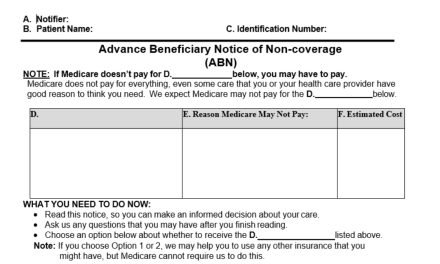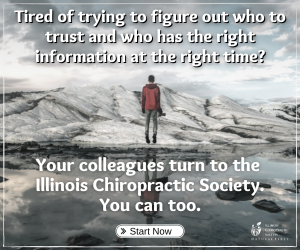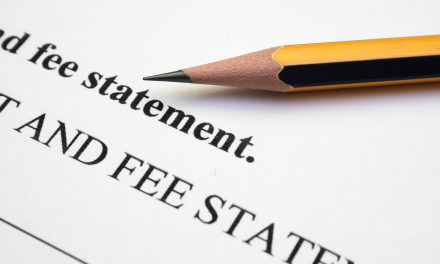
Disputing Tier Appeal Response and Other Disputes under BCBSIL Provider Agreement

The Illinois Chiropractic Society cannot provide legal advice, and as such, we do not intend for this document to constitute legal advice. We are providing the information below in order to inform members of the terms of the contract as we have been made aware of them. If you have questions regarding your specific practice and situation, please seek qualified legal counsel. Additionally, due to the potential risks, we encourage providers to obtain legal counsel for meetings held with insurers.
The relationship of in-network providers and BCBSIL is governed largely by the provider agreement you signed when you joined the network, and as BCBSIL has amended periodically. The Provider Manual and BCBSIL medical policies are also included in the agreement.
Terms of Agreement
Under those terms, you have agreed to resolve disputes using alternative resolution procedures instead of litigation. The procedures are spelled out in the agreement. They begin with a meeting with representatives of BCBSIL, followed by mediation by an independent organization, and finally, binding formal arbitration, as detailed below. According to the agreement, these procedures apply to any dispute between you and BCBSIL arising out of or pertaining to the contract. Different procedures apply when appealing individual claim denials.
Based on the agreement, providers who wish to pursue the appeal of their tier classification (or who have any other dispute relating to the provider agreement) may take the following steps: (This outline presumes the provider has already sent BCBSIL a letter of appeal, which was due on October 31, 2013.)
Notification:
If you receive BCBSIL notification that your appeal has been denied or modified to a still-unacceptable tier, you must send BCBSIL a written”Initial Notice of Dispute” if you wish to pursue your appeal further. The provider agreement does not specify a deadline for the Initial Notice. However, due to the ongoing implementation of the OrthoNet program, you may choose to send it immediately or as soon as possible after receipt of notification from BCBSIL.
- The ICS has made available a template “Initial Notice of Dispute” for members who wish to file. This information can be found online here.
- As allowed by the contract, the Initial Notice of Dispute requests a meeting with BCBSIL within 30 days after delivery of the Initial Notice.
MEETING:
If you and BCBSIL agree to a meeting, you should hear from BCBSIL to schedule a meeting to attempt to resolve the tiering dispute. If BCBSIL has agreed to a meeting but does not contact you to schedule, you should contact them in writing to request scheduling (email is acceptable).
- You may want to consider and bring support for your position to the meeting, including:
- BCBSIL has advised the ICS that tiering was based on your average number of visits per patient.
- Information to explain why your particular practice and patient population require a greater than the average number of medically necessary visits.
- ICS members may refer to the ICS OrthoNet release dated October 3, 2013, that provided guidelines for preparing the provider’s appeal letter. The factors referred to in that release along with other factors specific to your practice should be considered, presented and explained at the meeting.
- Please be cautious to limit your statements to the tiering issue. Avoid making overly broad statements that do not pertain to the justification for your tier classification, and avoid sharing other irrelevant information that could lead to additional inquiry.
MEDIATION:
- If no meeting with BCBSIL is held or if a meeting is unsuccessful in resolving the dispute, the party sending the Initial Notice (you, the provider) may submit the matter to mediation by a neutral mediation organization. Mediation is a form of informal dispute resolution in which an independent third party mediator attempts to facilitate a negotiated settlement between the parties.
- The Illinois State Bar Association provides information about how to select a mediator at http://www.illinoislawyerfinder.com/articles/legal-information/arbitration-mediation-and-dispute-resolution/choosing-a-mediator-illinois. The ICS will provide members with a form to request mediation. As the party who submits the matter to mediation, you will be responsible for coordinating with the mediator (i.e., scheduling, etc.)
- You may, but do not have to be, represented by counsel. The mediation will be held in Chicago, Illinois within 60 days of submitting to mediation unless agreed otherwise for later date or location
- For mediation, each party pays his or her own costs plus one-half of the mediator’s fees and costs. Mediators charge hourly and can range from $200-$600 per hour.
BINDING ARBITRATION
If mediation is not successful in resolving the dispute, you have the right to submit the dispute to arbitration. Arbitration is more formal than mediation and is similar to a court hearing at which both parties testify and present evidence. However, unlike a trial, arbitration takes place outside of a court, and both parties agree that the arbitrator’s decision is final. You may not appeal an arbitrator’s decision.
- The ICS will provide a form for members to request arbitration.
- The arbitration request must be submitted to the American Health Lawyers Association, 1620 Eye Street NW, Washington, DC 20006-4010, along with a filing fee.
- The arbitrator will be selected by agreement between you and BCBSIL from a list provided by the American Health Lawyers Association. If the parties are unable to agree, the American Health Lawyers Association will appoint the arbitrator.
- After hearing the case, the arbitrator will issue a written decision about the dispute and will designate one party as the “prevailing” or winning party.
- The “non-prevailing party” will pay the costs of arbitration, including the arbitrator’s fee and court reporter costs. Lawyers’ fees, consultant fees, and witness fees are NOT included, i.e., each party pays for his/her/its own.
- Arbitrator hourly rates can range from $200 to $700 per hour.
LITIGATION
The BCBSIL provider agreement states: “Contracting Provider acknowledges that this provision […] precludes Contracting Provider from filing an action at law or at equity and from having any dispute covered by this Agreement resolved by a judge or jury. Contracting Provider further acknowledges that this arbitration provision precludes Contracting Provider from participating in a class action or class arbitration filed by any other provider or any other plaintiff claiming to represent contracting Provider…Contracting Provider agrees to opt-out of any class action or class arbitrations that are currently pending.”
The ICS cannot provide legal advice and recommends that you seek individual legal counsel if you have questions concerning the impact and extent of the above provision on your ability to file a lawsuit.
As a reminder, the Illinois Chiropractic Society cannot provide legal advice, and as such, we do not intend for this document to constitute legal advice. We are providing the above information in order to inform members of the terms of the contract as we have been made aware of them. If you have questions regarding your specific practice and situation, please seek qualified legal counsel. Additionally, due to the potential risks, we encourage providers to obtain legal counsel for meetings held with insurers.



















